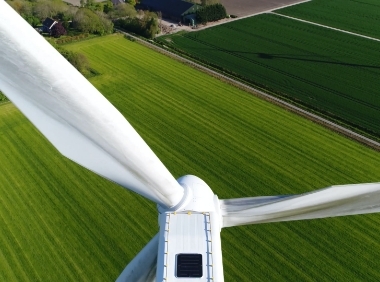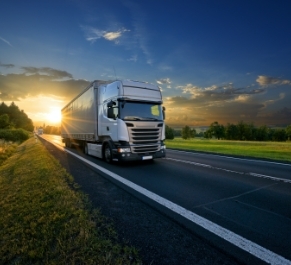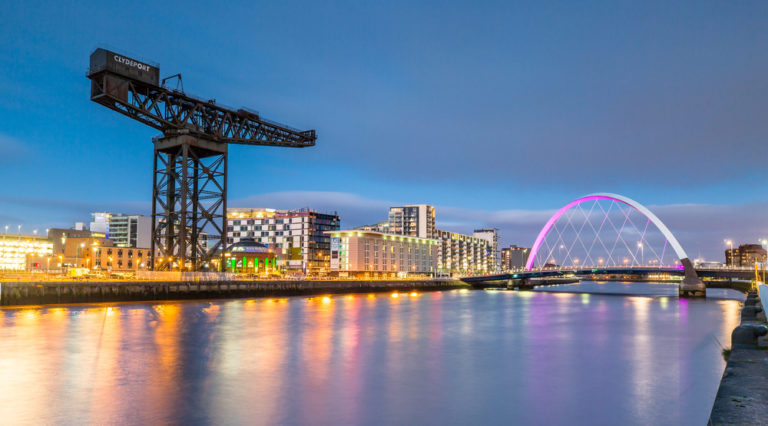Home » Knowledge Base » Why is decarbonisation important?
Why is decarbonisation important?
Around the world, people are realising that climate change is a real and pressing issue. The effects of climate change are already being felt by people and the planet, and if we don’t take steps to address the problem, things are only going to get worse.
Thankfully, there is something we can all do to help mitigate climate change, and that’s to decarbonise our economy. In this guide, we’ll explore what decarbonisation is, why it’s important, and how you can create a successful decarbonisation strategy.
What is decarbonisation?
Decarbonisation is the process of reducing or eliminating carbon emissions from a particular process or sector of the economy.
Decarbonisation might involve changes in technology, behaviour, or policy, with the ultimate goal being to reduce carbon emissions and take the necessary steps to limit global warming.
When a process or sector is decarbonised, it means that the amount of greenhouse gases it emits is reduced. This can be done in a number of ways, but usually involves switching to cleaner energy sources or adopting more energy-efficient practices.
If we want to avoid the worst effects of climate change, we need to reduce our greenhouse gas emissions by as much as possible.
Decarbonisation is one of the most effective ways to do this because it targets emissions from key sources in the economy, with a view to reducing the environmental impact of the process, while ensuring the process itself remains viable.

Why is decarbonisation important?
Protecting the planet
Right now, carbon dioxide emissions are being trapped in the atmosphere at an alarming rate. This is causing the global temperature to rise, which in turn contributes to unpredictable weather patterns.
Climate change has rightly been described as the biggest global security threat of our time. Without action now to reduce global warming, its impacts will become more severe as time goes on.
The more we use methods of decarbonising to reduce our global greenhouse gas emissions, the more likely we are to be able to protect ourselves from the worst effects of climate change.
Achieving net zero emissions targets
It’s estimated that to have any chance of keeping global warming to 1.5 degrees Celsius above pre-industrial levels -as outlined in the Paris Agreement – the planet needs to achieve net zero emissions by 2050.
That’s is less than 30 years away, and involves a massive collaboration across industries, sectors, countries, and continents.
If we are to achieve our net zero targets it’s important that we start now, and decarbonisation is one of the most effective ways to reduce emissions quickly and at a low cost.
Creating a sustainable economy
Just like the rest of us, the health of the global economy is tied to the health of the planet. Climate change caused by carbon emissions impacts all of us, and the economy will need to adapt to survive.
In the new economy, businesses will be expected to use decarbonisation to achieve carbon neutrality, and abandon any business practices that don’t fall in line with sustainability targets.
Given that industrial pollution is a key driver of climate change, there’s no way for Governments to achieve their net zero goals without working with businesses, and that collaboration will help us create an economy that is sustainable for all.
What opportunities does decarbonisation present for businesses?
In a business context, decarbonising means continually trying to lower your carbon emissions in everything your business does.
If you’re in a large office complex, it might mean downsizing. If your executives regularly fly off on business trips, it might involve more business over video conference. If your business activities rely on energy from fossil fuel power stations, it might mean switching to cleaner energy or investing in carbon capture and storage.
While there are short-term sacrifices involved in Decarbonising your business, there are benefits too. Most obviously, a low carbon economy can create new jobs and open up new markets for technologies and ideas.
Also, Governments are largely driving the effort to reach net zero. That means there are incentives in place for your business to go green, from grant funding for decarbonisation efforts, to favourable press coverage for green good news stories, all of which give you a competitive advantage.
What is carbon intensity and how does it impact decarbonisation efforts?
Carbon intensity is a measure of how much greenhouse gas a particular process emits per unit of energy. It’s often used as an indicator of the environmental performance of different energy sources.
Carbon intensity is important in the process of replacing fossil fuels. You can’t know which areas of your business activity should be switched to low carbon energy sources without first zeroing in on the most carbon-intensive parts of the process.
Discovering which activities produce the most carbon emissions can therefore have a big impact on the amount of carbon you emit overall. It can also act as an indicator of how your business stacks up against competitors in the same sector, which can help with benchmarking.

How can my business create a successful decarbonisation strategy?
Every organisations decarbonisation efforts will be different depending on the size of your business, what sector you’re involved in, and how carbon-intensive your existing business processes are.
That doesn’t mean there aren’t some sensible steps you can take to set yourself up for success:
1. Make a plan
Reducing carbon emissions doesn’t happen on its own. Decarbonisation can be a daunting task, but it’s much easier if you break it down into smaller steps. Create a plan of attack and stick to it so you can see your progress over time.
2. Use the right tools
There are many ways businesses can go about decarbonising their operations, but not all of them are equally effective. For example, switching to low carbon transport is one of the most effective ways for companies to cut their emissions, but it can be expensive and time consuming. So a good decarbonisation strategy will involve using the right tools for the right job.
3. Keep up to date
The world of decarbonisation is always changing, so you need to keep your ear to the ground and your finger on the pulse if you want to stay ahead of the curve. New technologies and ideas are emerging all the time, so it’s important to keep up with the latest developments if you want your decarbonisation strategy to be successful.
4. Get help
Decarbonisation can be a complex process, so don’t be afraid to ask for help from experts in the field. There are many organisations out there that can provide businesses and Governments with advice and guidance when it comes to decarbonising their operations.

Where can I get more information on decarbonising my organisation?
As we start moving towards net zero emissions, there will be a number of opportunities for businesses and Governments to capitalise on the growing low-carbon economy.
With new technologies emerging all the time, it’s important that organisatons don’t become complacent about decarbonisation and get caught behind the curve. That’s where ActionZero can help.
We’re a team of sustainability experts who specialise in offering organisations the technology and expertise they need to cut greenhouse gas emissions. For more infomation on helping your organisation reach net zero, get in touch with us today.
Explore our knowledge base

What is the transport decarbonisation plan?

What is the public sector decarbonisation scheme?

What is decarbonisation?

Example KB 6

Example KB 5

Example KB 4

Example KB 3

Example KB 2


